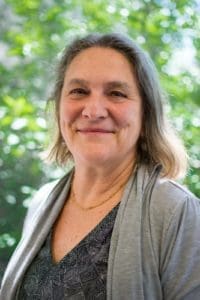An Ode to CFR’s Post Graduate Certificate Program
 There is a part of my life in which I am very fortunate: I have a job that I love and, even beyond that, a job that feels like a calling. I am the Director of Council for Relationships’ Post Graduate Certificate Program in Marriage and Family Therapy.
There is a part of my life in which I am very fortunate: I have a job that I love and, even beyond that, a job that feels like a calling. I am the Director of Council for Relationships’ Post Graduate Certificate Program in Marriage and Family Therapy.
As is relatively obvious from the name of the program, our training prepares master’s-level students for clinical work and licensure as marriage and family therapists. Less obviously, in addition to people with master’s or other degrees in various counseling disciplines, we offer the same training and opportunities to members of the clergy and to people who have a master’s degree or higher in nursing, child development, medicine, family studies, education, and sociology. This is a unique opportunity for clinical licensure for this latter group, who would not otherwise have the possibility of being licensed to do clinical mental health work.
Beyond the practicalities and opportunities available through the program, I love my job because the program itself is a jewel that has been lovingly crafted and nurtured over the past 89 years by a series of thoughtful, creative, and forward-thinking leaders who have been able to respond to changes in our culture, and in our understanding of how families function and how best to support people’s mental health. Over this time, the program has attracted faculty and students who are exceptional in their dedication to teaching and learning about becoming therapists. They are well-versed in many different approaches, which all center on the importance of the therapist-client relationship, the family, social, and cultural systems of which we are all a part, and the therapist’s awareness of their place in the process of growth and change.
The focus of our training is far more experiential than it is academic and is centered on learning how to be an effective clinician. I remember going through the program myself years ago, so very tired of being a student for so many years, and how refreshing I found it to be engaged in learning the art and craft of being a therapist, even in the subject matter of reading and writing assignments. Rather than a cognitive focus on learning theories, the program provides students with a holistic experience. Students learn to be fully present and to attune and listen deeply to another person while remaining connected to their own perceptions, awareness, skills, and knowledge.
The program has always had a relatively small class size which, together with the deeply personal shared experience of growth, allows for people to come to know one another well. Collegiality, mutual support, and deep friendship are hallmarks of life in the program – between students as well as with and among supervisors, faculty, and administrators.
Every year as graduation approaches, I am moved by having had the opportunity to observe and participate in the growth of our graduating students. Talking with one of them recently, we contrasted his early training experiences, in which he often found himself thinking “What do I do now?” with his emerging ability to be present with his clients. He is now able to listen fully to the many nuances of what his clients are sharing and to offer ways for them to move forward that take into account what he knows about their history, strengths, and struggles. He has learned various ways to engage clients in a growth process that helps them synchronize their internal experiences, thoughts, and emotions. We were both able to appreciate the hard work of all those in the Post Graduate Certificate Program that has gone into his reaching this moment, as well as the deep satisfaction of seeing everything we have been working on come together in such a powerful way.
Our Post Graduate Certificate Program has a tenacious and dedicated staff, supported by the equally committed Council for Relationships staff, as well as a longstanding reputation for excellence in training and clinical work. We are excited to move into our 90th year and to be continuing the vitally important work of training the next generation of family therapists.
